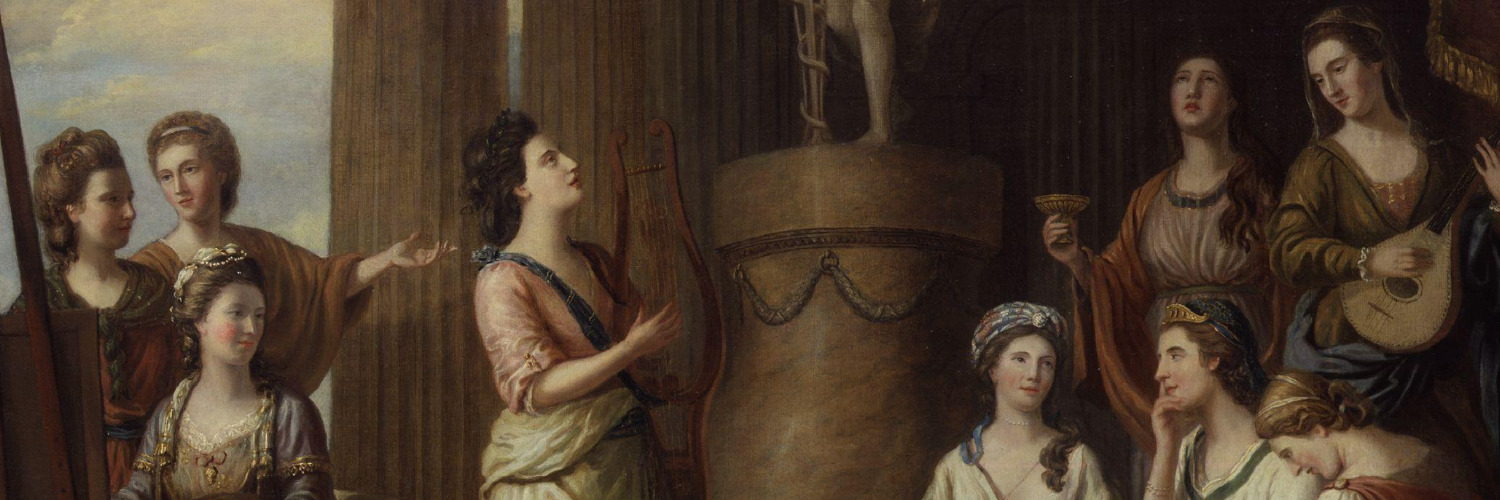- Physical form: One sheet folded into 2 leaves (18.5 x 22.3 cm)
- Cover: Mrs Withering / at the Larches / Birmingham
- PM: 7 o’Clock / JA 20 / 1815 N.T
[x] J A / 20 / 815
[a 3rd pm is barely visible] - WM: None
- Endorsement: Answered May 20th
- SM: Misc MS 4378
When your letter came to hand I was just thinking within myself, Do I owe my dear Lydia a letter, or does she owe me one, & I was going to write to settle the account, as one settles all one’s accounts at Christmas ^you know^— As one ought always to begin with matters of business, let me tell you that I asked my Brother, as you desired me, for letters, & I am sorry to tell you that he has not one. He never, he says, was in regular correspondence with Dr Withering,
tho letters have passed between them occasionally, & those have not been preserved. He begs his compliments to Mr Withering & would have been glad to have given him a more satisfactory answer. I like your scheme of travelling next year, & hope you will do ^pursue^ it. Who should travel if not such as you, who have leisure, & freedom from ties which might bind you to home, or, if you left it, would be pulling you back at
[fol 1v] every step, aisance to make the journey in the most agreeable manner, the vigour & prime of life to support the fatigues, & relish the enjoyments of it, & cultivated minds to reap its advantages. Next year the continent will not be so over run with english as it is at present, & the French will have learned what sort of comforts Englishmen expect, & the inns will have provided accordingly. I have been travelling too. I have been ascending Chimborazo with Humbolt,
crossing a rapid river upon a bridge of ropes, & making myself dizzy with looking down from precipices formed by two mountains which have been rent asunder. It does great credit to Helen Williams to have translated such a book. The greater part of it is far too scientific for me, but these scenes of wild nature Humbolt makes me feel, for he describes them as a man who felt them himself— I have just been reading The Lord of the Isles,
& lamenting that the expensive manner of printing at present in fashion, & the high price given for Quarto Poems tempts so many of our poets to write themselves down. I think you can hardly name one who has not rather lessened than increased his fame by his last performance. The scene in the hut of the Banditti & the death of Allan & the quarrel at the nuptial feast are however striking, but I can hardly think verses poured out with such rapidity will go down to posterity
[fol 2r] along with those of Pope or Milton— Too true it is that that amiable woman Mrs Reeve has lost her excellent husband.
It is as true that she bears it like one who deeply feels, but who is resigned to all the dispensations of providence. Her invariable sweetness acts like balm to her wounded heart, & her attention to her remaining duties, for she has two children, will keep her life from stagnating. Her sister Sarah has engaged the affections of a gentleman who is studying the law & the affair is settled, tho her marriage may not take place for some years.
Permit me to say that I am very glad to hear the affair is renewed between your cousin Lydia & her lover.
Where the heart has been truly engaged, it is great pity that little matters of pecuniary interest should part those who would have been happy together. We have had some matches broken off in our neighbourhood, after the house had been taken &c. where the parties are not likely to solder together again—Thanks for your entertaining account of the Lion in his den.
How that man can bear to be shown & questioned & stared at, after what he has been, I cannot concieve—If he had a good conscience indeed—Oh then he might encounter the scrutinizing glance & the eager stare & lose none of his dignity, but for him, What as Lord Byron says, must be the madness of his memory!—I am glad you are among people who rejoice in peace. This place
is full of nothing but Stockjobbers & Insurance brokers & I am indignant at seeing how little they regard the misery
of
[fol 2v] of a whole continent in comparison with their petty gains—But have we peace, there seems to be a great deal to settle yet at Vienna!
All here who know you desire affectionate Compts We are all pretty well. For myself I cannot bear the Winter
[on address panel]
so well as I could twenty, or ten, or two years ^ago^ however I am pretty well considering—Excuse a dull letter, I can write you no other this weather, but believe me ever
Your faithful & affectionate
Compts to Mr Withering
Jany 20

